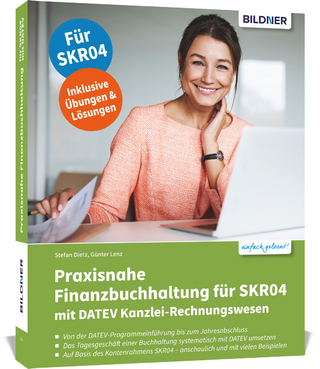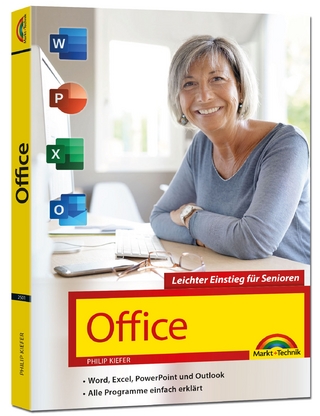
The Python-Based Laboratory
Oxford University Press (Verlag)
978-0-19-889699-9 (ISBN)
- Noch nicht erschienen (ca. Dezember 2024)
- Versandkostenfrei
- Auch auf Rechnung
- Artikel merken
The Python-Based Laboratory: A Hands-On Guide for Scientists and Engineers provides a learn-by-doing approach to acquiring the Python programming skills needed to implement computer-controlled experimental work. The book leads its readers to mastery of the popular, open-source Python computer language in its role as a powerful laboratory tool by carrying out interesting and relevant projects that explore the acquisition, production, analysis, and presentation of digitized waveforms. Readers, who are assumed to have no prior computer programming or Python background, begin writing meaningful programs in the first few pages.
The Python-Based Laboratory can be used as a textbook for science and engineering instructional laboratory students who are being taught up-to-date Python-based experimental skills. The book also works well as a self-study guide for professional laboratory researchers, industrial engineers, hobbyists, and electronics enthusiasts seeking to automate tasks using Python. Topics covered include the control of data acquisition devices (including multifunction data acquisition hardware and IEEE-interfaced stand-alone instruments), data file storage and presentation, digitized data concepts (such as resolution, sampling frequency, and aliasing), and data analysis techniques (curve fitting and fast Fourier transform). As readers work their way through the book, they build several computer-based instruments, including a DC voltmeter, digital oscilloscope, DC voltage source, waveform generator, blinking LED array, digital thermometer, and spectrum analyzer. Each chapter concludes with a Do-It-Yourself project and a Use It! example as well as a healthy selection of homework-style problems, allowing readers to test their understanding and further develop their Python-based experimentation skills.
John Essick is an emeritus professor at Reed College with research interests in the optoelectronic properties of semiconductors. Since 1993, he has taught computer-based experimentation skills as part of Reed College's junior-level Advanced Laboratory course and, along with his senior thesis students, used these skills to carry out many research projects. Essick is the editor of the Instructional Laboratories and Demonstrations section of the American Journal of Physics.
1: Python Program Development
2: Graphical User Interface Using Tkinter
3: Counted Looping and Waveform Plots
4: Conditional Looping and Real-Time Plots
5: GUI-Equipped Waveform Simulator
6: Introduction To Data Acquisition Device Features
7: Data Acquisition Using NI DAQ Device
8: Data Acquisition Using MCC DAQ Device
9: Data Files and Character Strings
10: Data Analysis: Curve Fitting
11: Data Analysis: Fast Fourier Transform
12: Control of Stand-Alone Instruments using VISA
APPENDIX A: Installing Python and IDLE
| Erscheint lt. Verlag | 26.12.2024 |
|---|---|
| Verlagsort | Oxford |
| Sprache | englisch |
| Maße | 189 x 246 mm |
| Themenwelt | Mathematik / Informatik ► Informatik |
| Technik ► Elektrotechnik / Energietechnik | |
| Technik ► Nachrichtentechnik | |
| ISBN-10 | 0-19-889699-9 / 0198896999 |
| ISBN-13 | 978-0-19-889699-9 / 9780198896999 |
| Zustand | Neuware |
| Haben Sie eine Frage zum Produkt? |
aus dem Bereich


